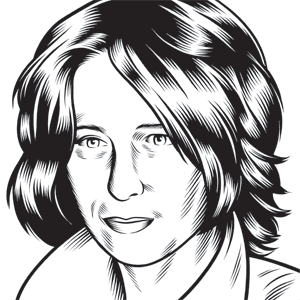I know there was a time before I read Chris Kraus’s I Love Dick (in fact, that time was only five years ago), but it’s hard to imagine; some works of art do this to you. They tear down so many assumptions about what the form can handle (in this case, what the form of the novel can handle) that there is no way to re-create your mind before your encounter with them. I remember seeing her book on a shelf in a grad student’s apartment that I rented for a summer in New York. With a title like that, how can you ignore it? Once it came into my hands, it didn’t leave them until the book was done.
Deeply feminist, formally both out of control and expertly in control, it traces the obsession of a married woman (named Chris) for a man she’s just met (Dick), mostly through her letters to him. The man is largely a figment of her projections and longing, and her husband (based on the French theorist Sylvère Lotringer, who was Kraus’s partner for many years) plays along to an extent. But the woman’s obsession soon goes beyond the erotic into the political and inexplicable: why doesn’t she have the power this man does? Could she ever? What might her letters accomplish? The book drew on her real-life experiences, marriage, and letters to a real man, and she included his only response, addressed to her husband—a shocking kick in the gut. (The man was later horrified by the publication of this book.)
Kraus began her career in the 1980s as an experimental, poetic, DIY filmmaker in New York’s post-punk scene. The Village Voice praised her films from a recent retrospective, citing their “savage humor, intelligence, and ingenuity.” She currently lives in L.A., but she seems to travel constantly through North America and Europe, on invitation, to speak about her influential writing. She is also, significantly, the editor and originator of Semiotext(e)’s Native Agents imprint, which publishes radical and feminist writers like Kathy Acker, Eileen Myles, Kate Zambreno, and Michelle Tea.
This interview took place in Toronto, while she was visiting to participate in a panel on writing about sex that some friends and I had put together. The following day, she visited my apartment. We spoke at the table in my study, over tea.
Kraus is the author of nine books, which include works of fiction, nonfiction, and criticism. Her most recent collection of art essays is called Where Art Belongs, and her most recent novel is Summer of Hate. From the beginning of her career until now, her writing has strikingly conveyed how power works...
You have reached your article limit
Sign up for a digital subscription and continue reading all new issues, plus our entire archives, for just $1.50/month.
Already a subscriber? Sign in





